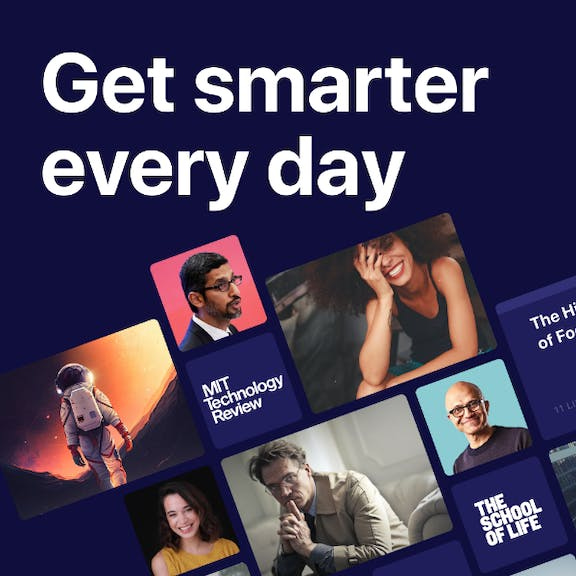Friends,
Can you keep up? Sometimes, there aren’t enough hours in the day to keep up. The further we step into this new era, the more that happens. This week has been a step change in the history of AI with incredible advancements that are moving at a breakneck pace.
The biggest news layer of the week was the release of OpenAI - GPT-4. The big step up is that the new model is able to interpret pictures and explain them:

Microsoft's new Copilot AI is leveraging the power of GPT-4, bringing a revolution to Word, Excel, Teams, and Powerpoint. Tedious tasks like writing documents, building spreadsheets, and formatting slides are now a thing of the past. I would make time to watch the Future of Work with AI from Microsoft. It’s a vision of the future. Watching it felt like someone was doing my work for me.
Google has also released generative AI in Gmail, docs, sheets, and slides, making it easier to get email replies and proofread presentations with AI's help. In addition, the latest release of the generative image AI, Midjourney v5, has achieved photorealism, making creative work more manageable than ever before.
LinkedIn has joined the excitement by using GPT-4 to power writing. Premium users can use it to write their About section and headline, while recruiters can use it to write job descriptions. In a very short period of time, AI is everywhere - and larger companies are jumping at the opportunity to power speed away, while many upstarts are surfacing to satisfy multiple use cases. It’s not going away. You can now run a GPT-3-level AI model on your laptop, phone, and Raspberry Pi. That means that the power we will hold in our hands over the coming years will be astronomical. I also touched on the issue of copyright a few weeks back. The US just ruled that AI-generated images from text can't be copyrighted, meaning that ownership of content from AI will become a disputed area, even moreso than before. However you look at it, the winners will be those that adopt AI, but also those that define their own EQ, their humanity, and their ability to differentiate will be the winners in this new world. Uniqueness will trump all when we all have similar superpowers.
The future of work looks crazy and daunting but also exciting, and while some jobs may be impacted, learning to use AI will help people excel in their careers. Integrated generative AI has officially begun, and every app or product should be considering where and how to integrate generative AI as it becomes the new interface for many product features. It's going to be an exciting ride in the world of tech, and we should expect incredible advancements.
To give some context, this highlight of what’s possible in this new world is astonishing:


Stay Curious,
Every day Refind picks 5 articles that make you smarter, tailored to your interests. Loved by 200,000+ curious minds.
Subscribe to get 5 links / day
Here are my recommendations for this week:
Now
Persistent Stress: What Every Productive Worker Needs to Know: An insightful piece on how and why we get stressed at work. Persistent stress can make planning, productivity, and getting through the never-ending to-do list seem especially urgent for independent workers. Today, more of us are aware of the risks of burnout and worry that how we work will lead to a crash. We use technology designed to streamline our work and remove guessing games from decision-making. Notifications—on our phones, in our inboxes, on our desktop screens—nag us with overdue tasks and urgent reminders. We’re getting more done than ever (yes, you too), but many of us still feel like it’s not enough or that we never quite have the time for the work we want to do.
Influencer Parents and The Kids Who Had Their Childhood Made Into Content: For Gen-Z, social media has always been a given. Many consider the first social networking site launched in 1997, the same year that Pew Research marks as the beginning of Generation Z. It’s commonplace for young people of this generation to have their triumphs and travails documented on the Internet, with a digital footprint that follows them from platform to platform over the years. But for some young people, their parents shared more than evidence of an elementary school Spelling Bee win or a smiling photo of their first day in college. Instead, the intimate details of their lives, from videos of them as crying children to footage of a parent disciplining them – are shared and sometimes monetized without their explicit consent.
The End of Silicon Valley (Bank) : Banks are, at their core, facilitators: depositors lend their money to a bank, for which they are paid interest, and banks lend that money out, again for interest. A bank is profitable if the interest rate they charge for loans is greater than the interest rate they pay to depositors. Banks achieve this by leveraging time: depositors earn a lower interest rate in exchange for being able to withdraw their money at any time; loans earn higher interest rates, but take years to pay back. The reason this works is because a bank ideally has a diverse set of depositors, whose funds come and go on an individual account basis, but on an aggregate basis are steady; this provides the stability for those long-term loans. Also check out: The Ugly Lessons of Silicon Valley Bank’s Collapse
Streams are made of this: will digital platforms change our musical memories? So many of our most precious memories are anchored in particular songs. But does the easy availability of every track spell the end of that?
Your brain may not be private much longer: Neurotechnology is upon us. Your brain urgently needs new rights. If you’ve ever wished your brain was more user-friendly, neurotechnology might seem like a dream come true. It’s all about offering you ways to hack your brain, getting it to do more of what you want and less of what you don’t want. But neurotechnology can also seriously threaten privacy and freedom of thought. In China, the government is mining data from some employees’ brains by having them wear caps that scan their brainwaves for anxiety, rage, or fatigue.
Next
Tim Cook bets on Apple’s mixed-reality headset to secure his legacy: When Tim Cook unveils Apple’s new “mixed-reality” headset later this year, he won’t just be showing off the tech giant’s latest shiny gadget. The Apple chief will also be guaranteeing his legacy includes the launch of a next-generation hardware product that some inside the company believe might one day rival the iPhone.
After seven years in development — twice as long as the iPhone — the tech giant is widely expected to unveil a headset featuring both virtual and augmented reality as soon as June.
The Future Smartphone: More Folds, Less Phone, a Whole Lot of AI: The Smartphone is facing a reckoning—at least from a sales perspective. During the 2022 holiday season, smartphone shipments declined more than 18 percent from the same period the year before. In general, last year had the lowest annual shipment total since 2013. Research firm IDC said this was due to “significantly dampened consumer demand, inflation, and economic uncertainties.” One needs only to do a double-take at their grocery bill to feel these pressures, but macroeconomics aside, the smartphone itself probably deserves some of the blame (or credit) for our waning interest. Smartphones are, actually, amazing devices. That’s why we’re so addicted to them and why, in so many places around the globe, most people have one. You don’t even need to spend a grand anymore to get a premium phone. Have you used a $300 or $400 phone lately? They’re pretty darn good. Phones are also becoming more repairable; why buy a new one when you can just swap in a better battery? The used or refurbished market is growing too.
GM plans to let you talk to your car with ChatGPT, Knight Rider-style: While GM won't be adding Knight Rider-style turbojet engines or crime-fighting weaponry to its vehicles, its cars may eventually talk back to you in an intelligent-sounding way, thanks to a collaboration with Microsoft.
The Strongest Evidence Yet That an Animal Started the Pandemic: A new analysis of genetic samples from China appears to link the pandemic’s origin to raccoon dogs.
This couple just got married in the Taco Bell metaverse: The future of virtual weddings is shiny, tacky… and sponsored.
Every day Refind picks 5 links from around the web that make you smarter and tailored to your interests. Loved by 200k+ curious minds. Sign up here for their free newsletter
If you enjoyed this edition of Box of Amazing, please share and help me grow this group. If you share it on Twitter or LinkedIn, please tag me so that I can thank you.





